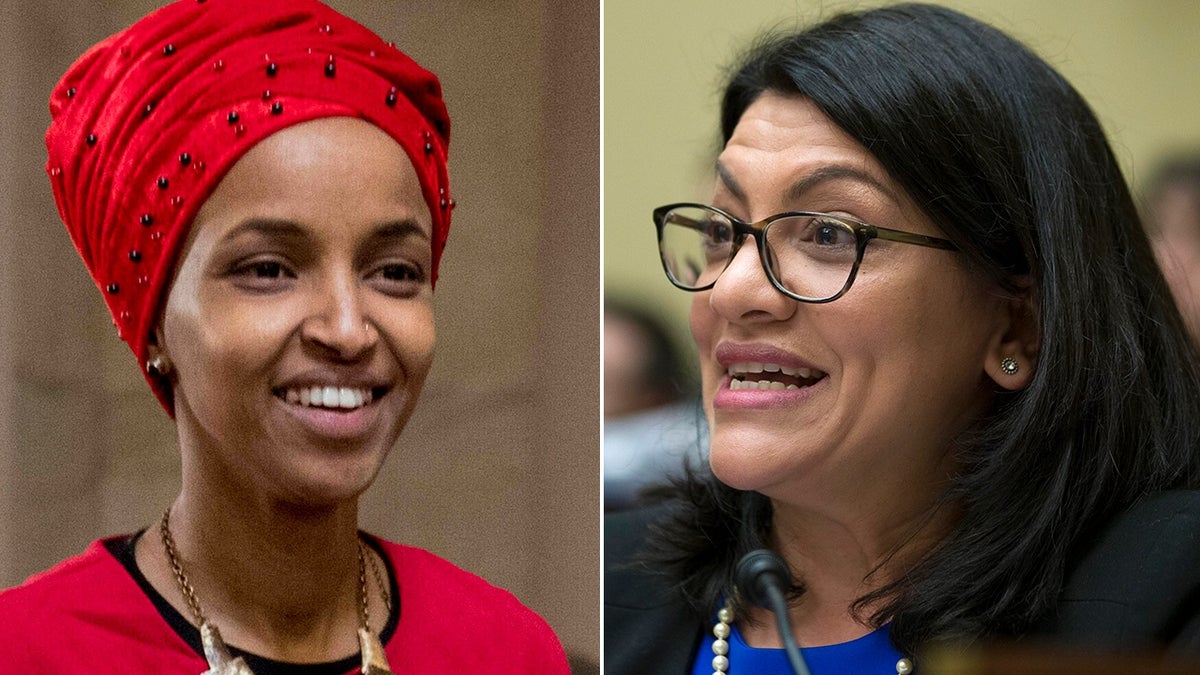
Democratic Reps. Ilhan Omar, D-Minn., and Rashida Tlaib of Michigan (Associated Press)
In my travels to the United States, members of the Trump administration, Congress and the media have asked me a variation of the same question: “What advice would you offer Democratic Reps. Rashida Tlaib and Ilhan Omar, the first Muslim women to serve in the House of Representatives?”
It is a challenging question. I may be the secretary-general of the Muslim World League, but it’s not my place to counsel lawmakers — Muslim or not — elected and entrusted to represent their communities. My refrain is often along the lines of: “They should faithfully advocate for their constituents, and faithfully serve as custodians of the Constitution.”
It is perhaps an unexpected response. But it is one that reflects my view of inclusive national integration, and how best to promote tolerance toward people of all faiths and backgrounds.
MINNESOTA DEMS CONSIDER PRIMARY CHALLENGE AGAINST ILHAN OMAR
As I tell my American friends in and out of government when they ask about the integration of Muslims, the majority in any country has vital obligations. For one, they must create a framework of identity independent of religious or ethnic affiliation. The binding element should be love of country. The universal ambition should be to enable meaningful contributions to society.
I have dwelled upon this matter deeply in the weeks since a crazed extremist gunned down 50 Muslims in their houses of worship and injured 50 others in New Zealand. This is not because the attack relates to the two congresswomen, but because the question goes to the heart of how we construe successful integration. My answer remains the same.
In fact, I believe the message is even more poignant today. To build tolerance and promote full national integration, majority and minority bear a responsibility that is, at its core, similar. It starts with embracing diversity and putting the interests of the entire nation first.
Respecting the law is a two-way street. When I sat down with French politician Marine Le Pen, people questioned what I was trying to do. I hope I showed them otherwise when we found some common ground, particularly concerning integration. We agreed that the nation must guarantee full rights and freedom to all people under her flag and that all citizens must respect the laws of their government.
We can teach our children religion without isolating them from their communities, or erecting psychological walls between them and the majority.
No nation, no community, and no majority or minority are immune to mistakes that hinder inclusive citizenship. We must all explore our own actions and prejudices to determine how well we are contributing to harmony, coexistence and national cooperation. We should examine our civil society institutions to see if they effectively advocate the interests of a national body representative of everyone.
My organization represents the interests of all of the world’s Muslims, but I see my mandate as broader. I am determined to combat intolerance and hatred toward anyone based on race, religion, ethnicity or personal beliefs. Bigotry and racism against one is a crime against all.
As a Muslim right now, it might seem appealing to play the victim card to gain political advantage. This trap benefits no country and no minority group, however great its grief. We as Muslims must confront the problem from within, and see how our attitudes or behavior contributes to misunderstanding. This is not to say Muslims are culpable, but that we share a responsibility to make things better.
CLICK HERE TO GET THE FOX NEWS APP
I tell Muslims everywhere I travel to embrace the nations they live in and to positively integrate. The process must start early. It makes no sense to separate Muslim children and youth from the rest of society or to cloister them away in Islamic private schools. We can teach our children religion without isolating them from their communities or erecting psychological walls between them and the majority.
Dialogue is critical. Unless we talk to one another, even with those whose opinions we most virulently reject, how are we to define an inclusive national interest? If we differ on tactics and approaches, we can start by harmonizing our goals, which must include the advancement of the entire nation rather than any partisan bloc, religious community or ethnic subgroup. This maxim must hold true for both the majority and the minority.








































